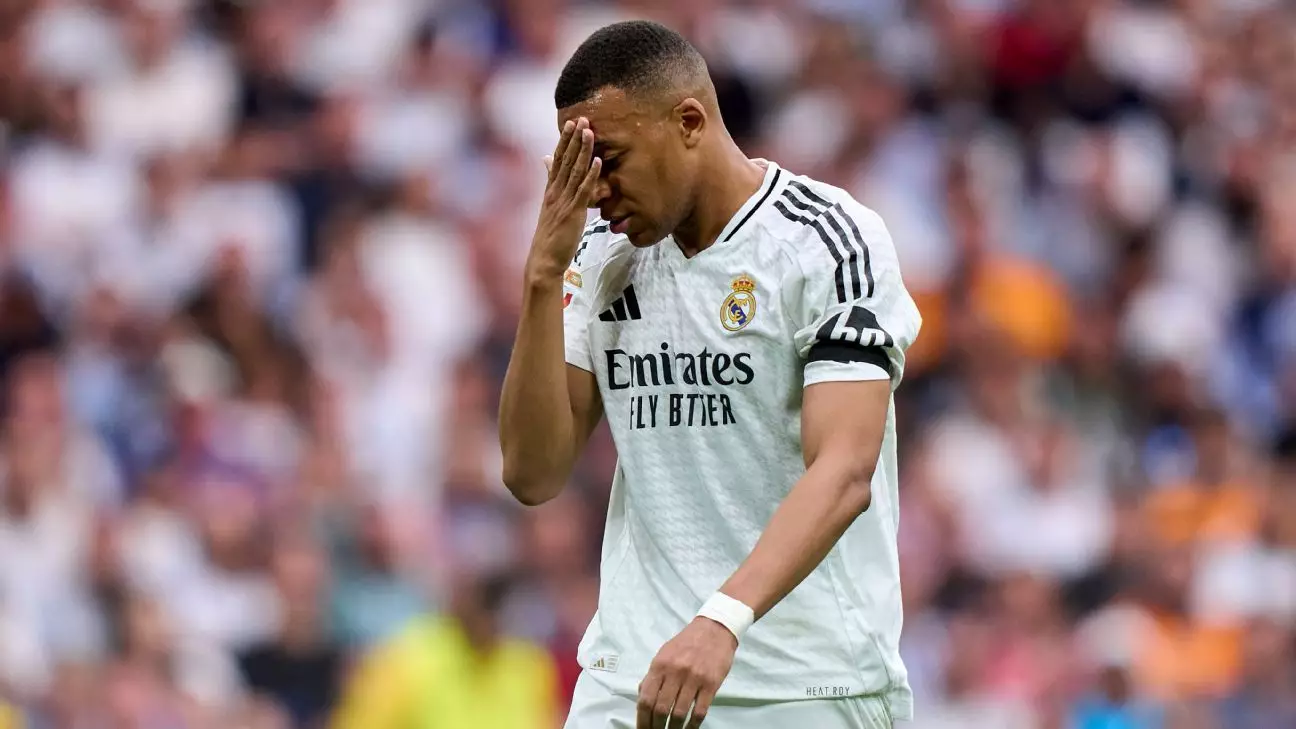Real Madrid is currently grappling with challenges both on and off the pitch, as star forward Kylian Mbappé has been hospitalized due to acute gastroenteritis. The announcement from the club came after Mbappé missed a crucial opening match in the Club World Cup against Al Hilal. This news not only raises questions about his immediate contributions to the team but also highlights broader concerns regarding player health and fitness in an increasingly demanding football schedule.
Mbappé, a player known for his electrifying pace and goal-scoring ability, found remarkable success last season, netting 43 goals despite the team’s overall disappointing performance, which yielded no major trophies. His absence from the field is more than just a gap in attacking prowess; it underscores the fragility of elite athletes who often push their bodies to the limit. In a world where mental resilience and physical health are pushed to extremes, one must wonder if clubs adequately prioritize player well-being over immediate results.
Impact on Team Dynamics
The absence of a key player like Mbappé can significantly alter the dynamics of the team. In his stead, youngster Gonzalo García took to the forefront during the draw against Al Hilal, scoring the opening goal and showcasing the club’s promising talent pipeline. However, the stark reality remains: can a young player maintain the momentum and lead a traditionally big club in critical matches? This situation presents a dual perspective—while it opens doors for emerging talents, it also brings the pressure of expectations.
Moreover, Real Madrid’s coach Xabi Alonso is at a formative phase of his managerial career, seeking to instill his philosophy and style within a club known for its lofty ambitions. The results from this tournament are particularly pivotal as it marks his chance to secure his first trophy. Canoeing through these turbulent waters may illustrate his ability to adapt, especially in the face of player setbacks like Mbappé’s health concerns.
The Evolution of Football Priorities
The situation also begs a more significant inquiry into the priorities and practices of modern football. As the sport evolves, the balance between rigorous training, match readiness, and player health comes into sharper focus. Real Madrid’s medical team has a critical role in ensuring that players are not only fit to play but also adequately recovered. It urges other clubs to reconsider their training regimens to prevent similar health issues and promote longevity in their players.
Additionally, as more clubs turn to established stars like Mbappé, there’s a pressing need for a cultural shift emphasizing long-term sustainability over short-term gains. Athletes shouldn’t just be seen as mere game-changers but rather as individuals who require holistic support to thrive physically and mentally.
A Call for Comprehensive Support Systems
In this moment of challenge for Real Madrid, there is an opportunity to re-evaluate how clubs manage athlete health and optimize performance. While the focus often lies on results, commitment to player welfare can enhance not only individual longevity but also collective success on the field. As fans and stakeholders dial into these discussions, it is crucial to advocate for systems that prioritize the athletes’ well-being, forging a more resilient future for football.


Leave a Reply